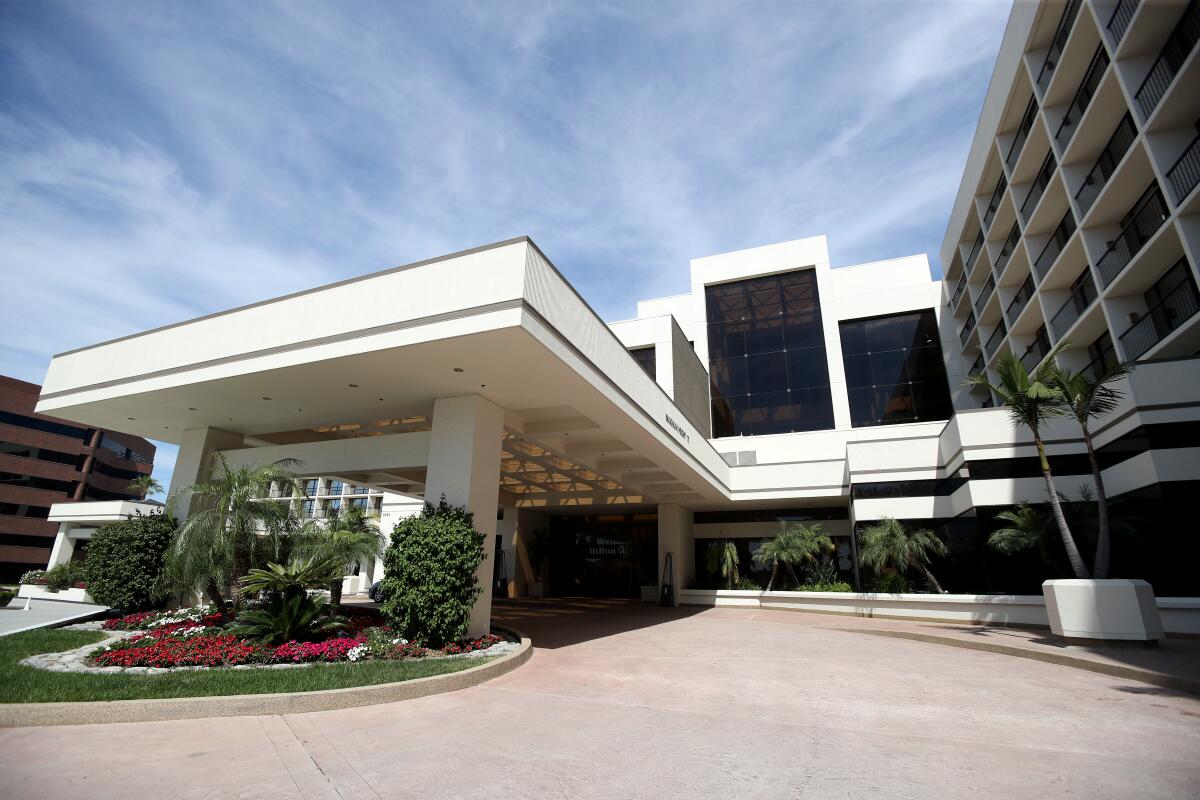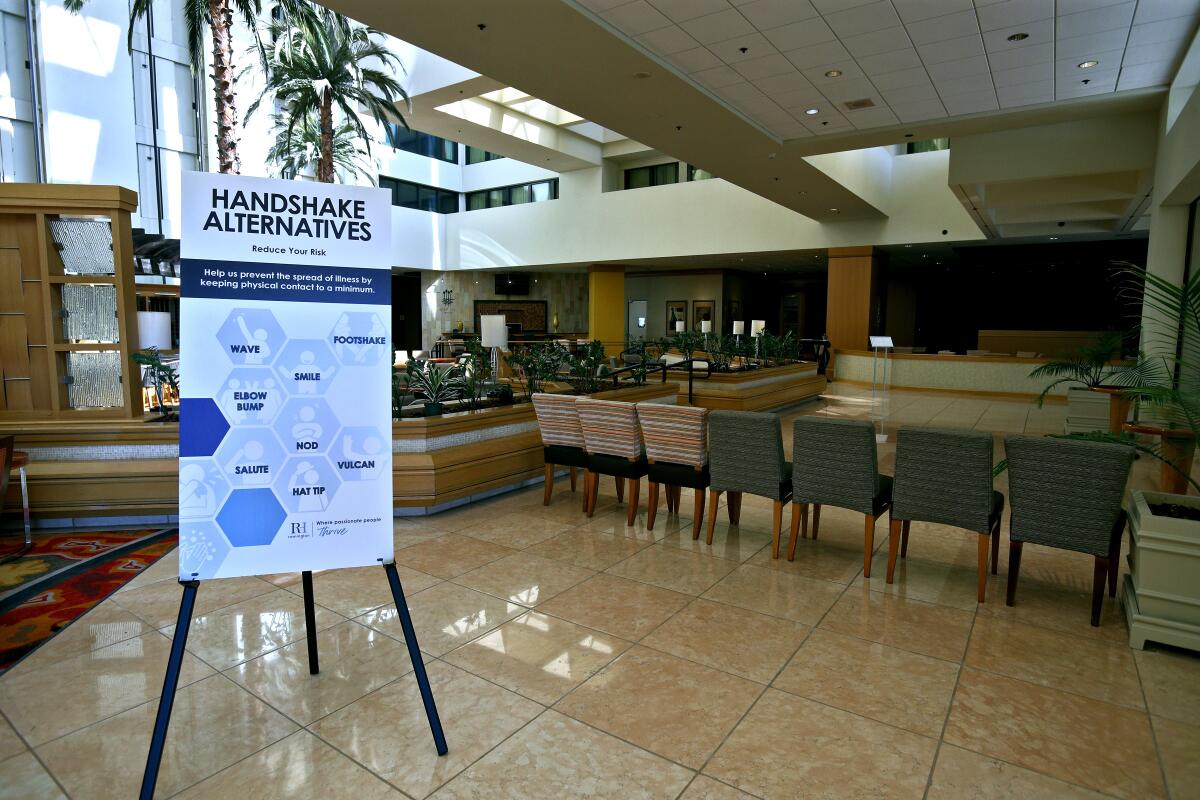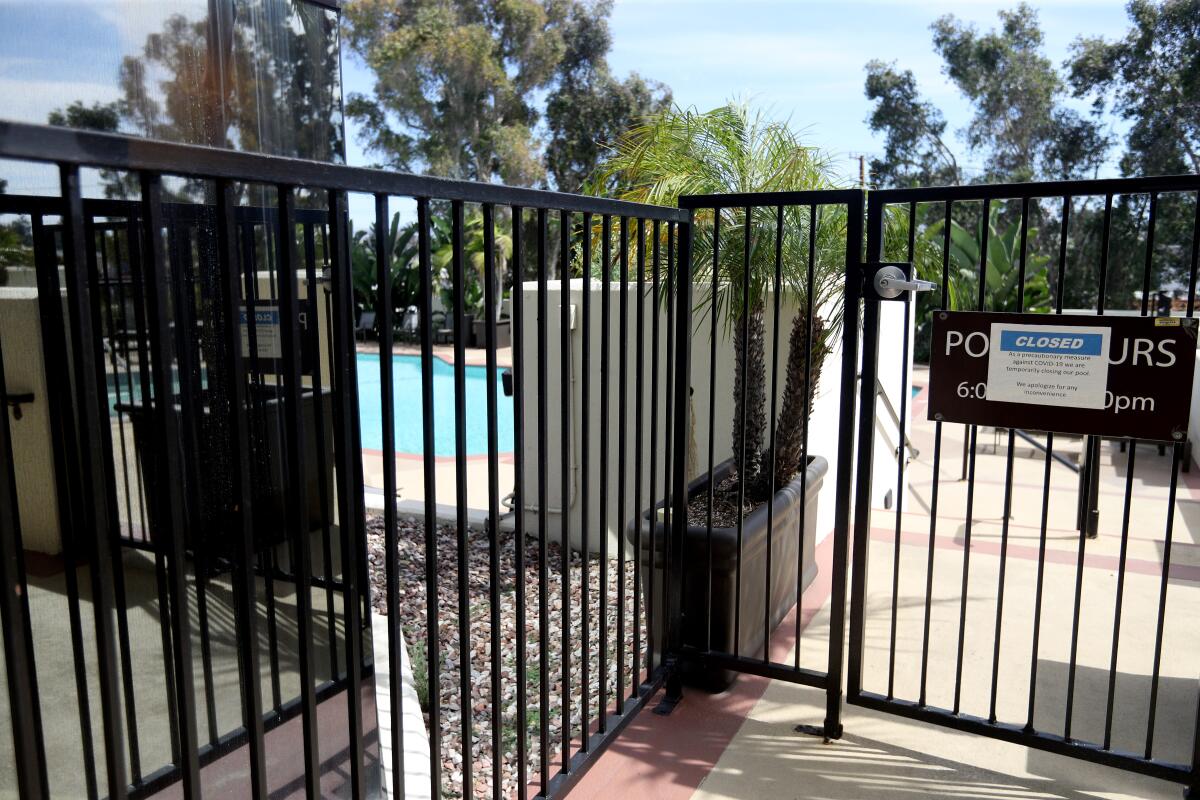Record-low hotel occupancy threatens the survival of Costa Mesa’s tourism boosters

- Share via
Hilton Orange County is usually a sought-out destination for corporate travelers, convention organizers and weekend guests hoping to get a taste of Costa Mesa dining, shopping and entertainment.
But in these pandemic times, the popular hotel is a shadow of its former self. Travel bans and shelter-in-place restrictions have driven occupancy rates as low as 20%, while other hotels in town report average rates as low as 10% of capacity.
Staff at the Hilton has been reduced and amenities like the fitness center, pool and food service are on hold as crews focus on keeping surfaces sanitized and guests safe, according to Hilton Orange County Marketing Director Lynne DiFrancesco.
“We’re seeing on the weekends short-term occupancy pick up — I think people are getting a little stir crazy and want to get out,” DiFrancesco said Wednesday. “[But] this is some of the lowest occupancy I’ve seen in my career, for sure.”

Record-low attendance isn’t just bad for hoteliers, but for city revenues and groups who rely on occupancy tax assessments to stay afloat.
Travel Costa Mesa is a nonprofit destination marketing organization that for 25 years has encouraged tourism and engaged outside interest in local commerce and events, from the OC Fair to Segerstrom Center for the Arts’ Summer Jazz Series.
The group’s $2.7 million operating budget is almost entirely dependent on hotel occupancy, said spokeswoman Jenny Wedge.
“That funding pays for our salaries. It pays for our marketing, our office and all of our operating expenses,” Wedge said, adding that the group’s six full-time employees have taken pay cuts through May.
Local hotels and motels charge visitors an additional 8% of their overnight room fee as a transient occupancy tax (TOT) that goes into the city’s general fund. This fiscal year, the city anticipated receiving $9.6 million in revenue from the levy.
Hotels wishing to enter a partnership with Travel Costa Mesa pay an additional 3%, in exchange for inclusion in the group’s marketing efforts, through a city-approved business improvement assessment. Currently 11 establishments, including the Hilton Orange County, pay into the program.

With a two-month delay between tax earnings and receipts, TCM won’t know the full impact of April’s magnificent slump until June, said President Paulette Lombardi-Fries.
“I’m going to get a very small check in June that will reflect what happened in Costa Mesa in April,” Lombardi-Fries said. “It probably won’t be enough to pay our rent.”
Another ominous bellwether for Travel Costa Mesa has been the continuing cancellation of events the group would have marketed to potential tourists across the globe. In the span of a month, the OC Fair, OC Marathon and Orange County Tourism Conference were all taken off the table.
To help soften the blow, TCM is ramping up an online tourism campaign, offering Costa Mesa-themed Zoom backgrounds, virtual art walks and a lifestyle blog with tips on everything from meditation to making craft cocktails, provided by area business leaders.
“For now, we’re just trying to stay top of mind for people,” Wedge said. “The goal here is people are seeing all these things and knowing when you can travel, all of those things will be here.”
Lombardi-Fries said despite the rough spot, she’s hopeful about the future of local tourism.
“I don’t see travel going away. Travel, to me, is essential,” she said. “It’s going to change without a doubt, but I’m cautiously optimistic we’re going to learn a lot from this — and we’ll be OK.”
All the latest on Orange County from Orange County.
Get our free TimesOC newsletter.
You may occasionally receive promotional content from the Daily Pilot.








